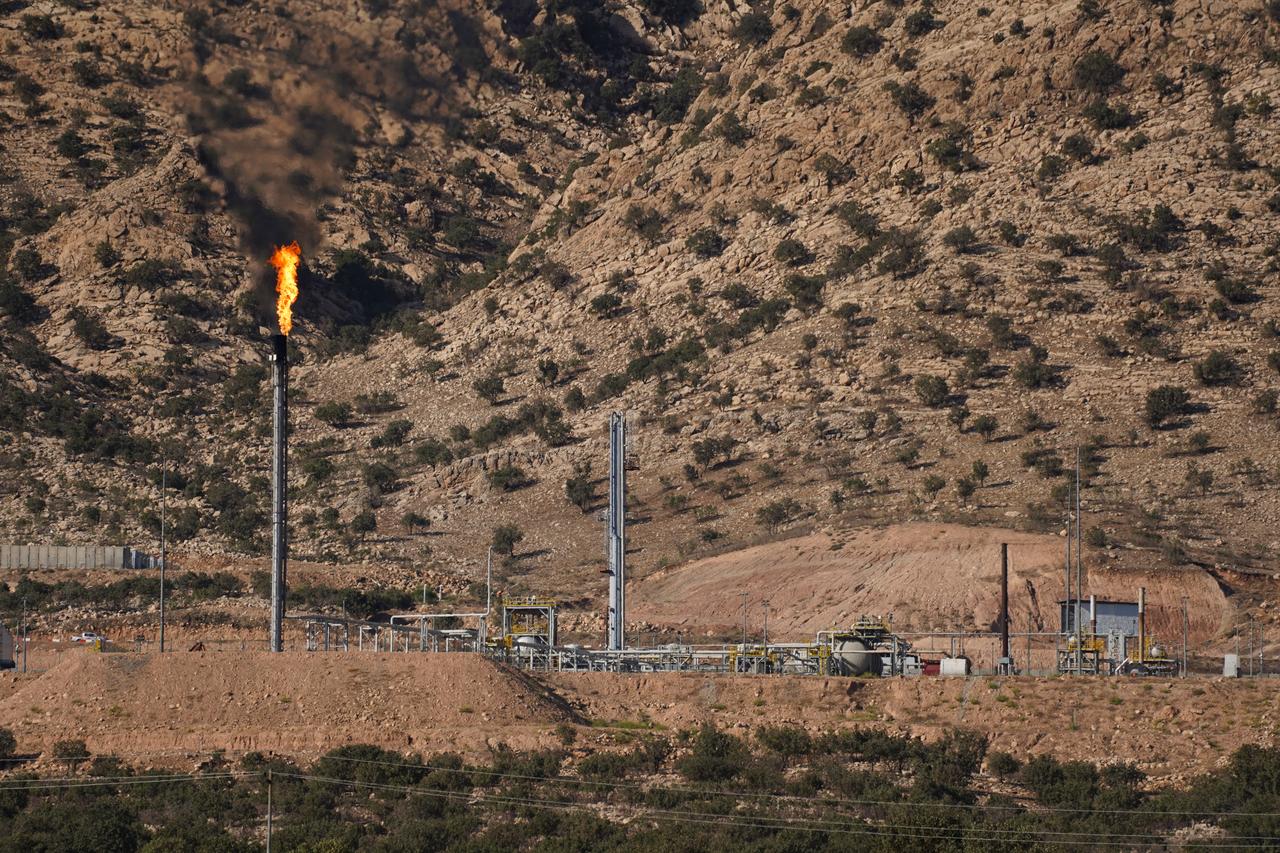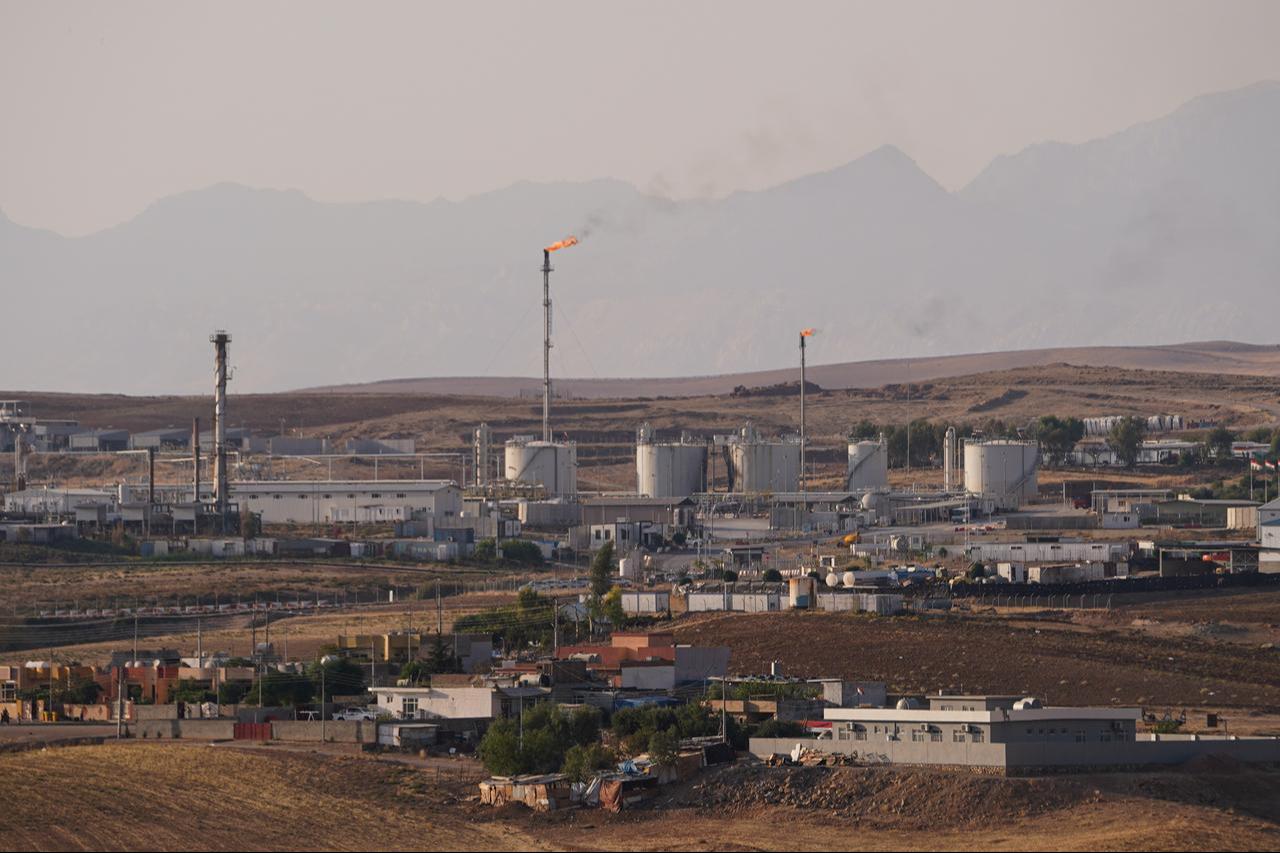The Trump administration is working to ensure that oil exports from northern Iraq, transported through a pipeline to Türkiye, which resumed in late September after a two-year halt, continue flowing in the long term to bolster Iraq's economy, benefit U.S. companies, and counter Iran's influence in the region.
The U.S. is focused on ensuring that the export agreement is implemented and its financial terms are honored, a senior State Department official speaking to Bloomberg said on Friday. The official, who asked not to be named while discussing private talks, said the U.S. had worked in recent weeks to bring together international oil companies with the Iraqi and Kurdish governments in an effort that included hundreds of phone calls and meetings.
Oil shipments through the Iraq-Türkiye pipeline resumed at Sept. 27 with Turkish Energy and Natural Resources Minister Alparslan Bayraktar announcing it.
The pipeline had been shut since Feb. 6, 2023, due to earthquakes, but was declared operational by Turkish energy company BOTAS in October of that year.

The twin-line pipeline, with a combined capacity of approximately 1.5 million barrels per day, connects oil fields in Iraq, including those within the Kurdish Regional Administration (KRG), to the Mediterranean export terminal at the Turkish port of Ceyhan.
Iraqi Prime Minister Mohammed Shiaa al-Sudani stated that the agreement was historic.
"Today we reached a historic agreement under which the Federal Ministry of Oil will receive crude oil produced from the fields in the Kurdistan Region of Iraq and export it through the Iraq-Türkiye pipeline," al-Sudani said on X.
He called the agreement "an achievement 18 years in the making."
Iraq's Oil Ministry stated that crude produced in the region would be delivered to Iraq's State Organization for Marketing of Oil and exported via Ceyhan under an agreement with the Kurdish Regional Government and the producing companies. Initial shipments are expected to average about 200,000 barrels per day.
The current agreement only lasts until the end of the year, with the parties scheduled to hold talks on hundreds of millions of dollars of dues owed to the companies. Türkiye is also pushing for new terms for transporting the crude.
U.S. Secretary of State Marco Rubio said last week the agreement "will bring tangible benefits for both Americans and Iraqis while reaffirming Iraq's sovereignty."
U.S. pressure was a key driver of the export deal, and Washington now wants to see the pact transformed into a long-term agreement that also protects the interests of U.S. companies, according to Iraqi and Kurdish officials.
The U.S. role in facilitating the deal to resume shipments strengthens its long-term durability, according to the State Department official.
The oil ministries of Iraq and its Kurdistan region did not respond to requests for comment on the U.S. role. The APIKUR, which represents the companies in the area, said it welcomed the agreement that has enabled exports through the pipeline.

With the Türkiye pipeline closed since March 2023, some oil was transported to Iran and Türkiye via trucks as operators looked for alternative markets, according to the U.S. Energy Information Administration.
John Roberts, a senior fellow at the Washington-based Atlantic Council, speaking to state-run Anadolu Agency (AA) on Sept. 28, said the reopening is "helpful, but not crucial."
"The line can carry more than a million barrels a day, about 1 percent of world production," Roberts said.
"That is a lot of oil, and it helps in terms of general supplies. But Europe is not short of oil, and consumption there plays a smaller role in the energy balance than it used to. So getting the pipeline back into action helps, but it's not vital," Roberts added.
The resumption of oil flows "eases Türkiye's own energy balance, even though some of that will be crude oil for export at Ceyhan," he added.
Francesco Sassi, a political scientist at the University of Oslo, who also spoke to AA, said the resumption has little impact on European energy security but signals a shift in geopolitics.
"The implications for the wider EU and regional energy markets of the pipeline's resumption are not particularly evident in terms of energy security, as in these last two and a half years, operators managed to find alternative supplies, especially in the last year of supply glut and lower prices," Sassi said.
He added that Iraq needs to reduce its reliance on the Strait of Hormuz, where transit threats have flared amid regional tensions, while Baghdad and Ankara are pushing to resolve disputes with the Kurdish regional government.
"The renewed push in both capitals aims at handling energy insecurities while creating a political and economic axis stretching from the Gulf countries to the Mediterranean Sea," Sassi concluded.